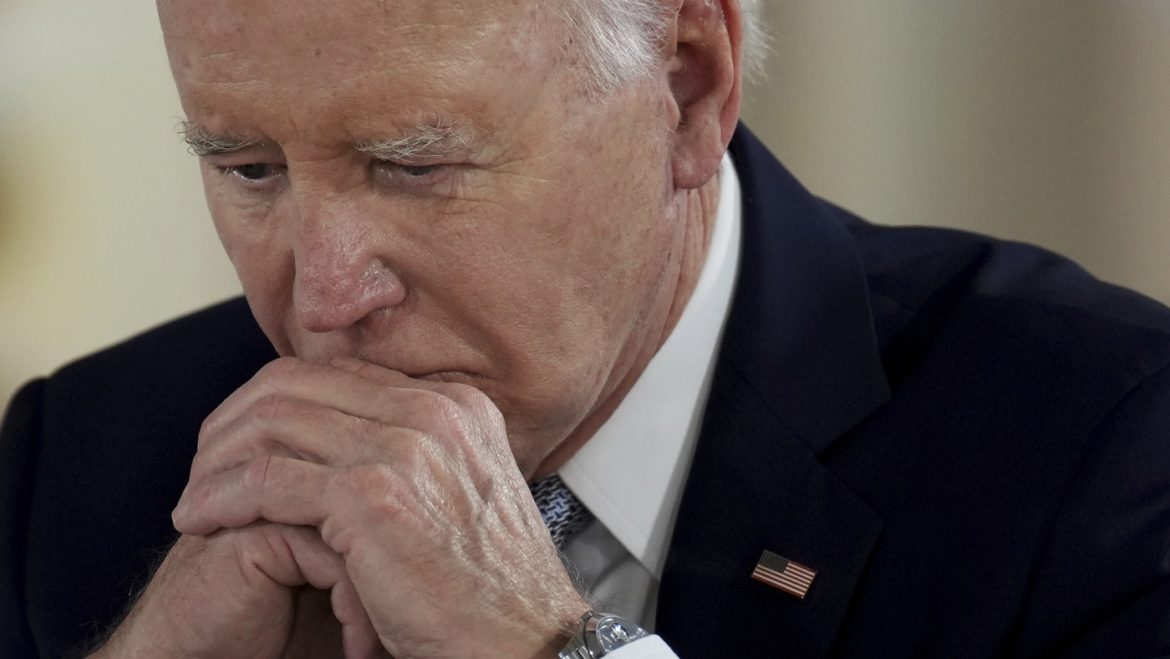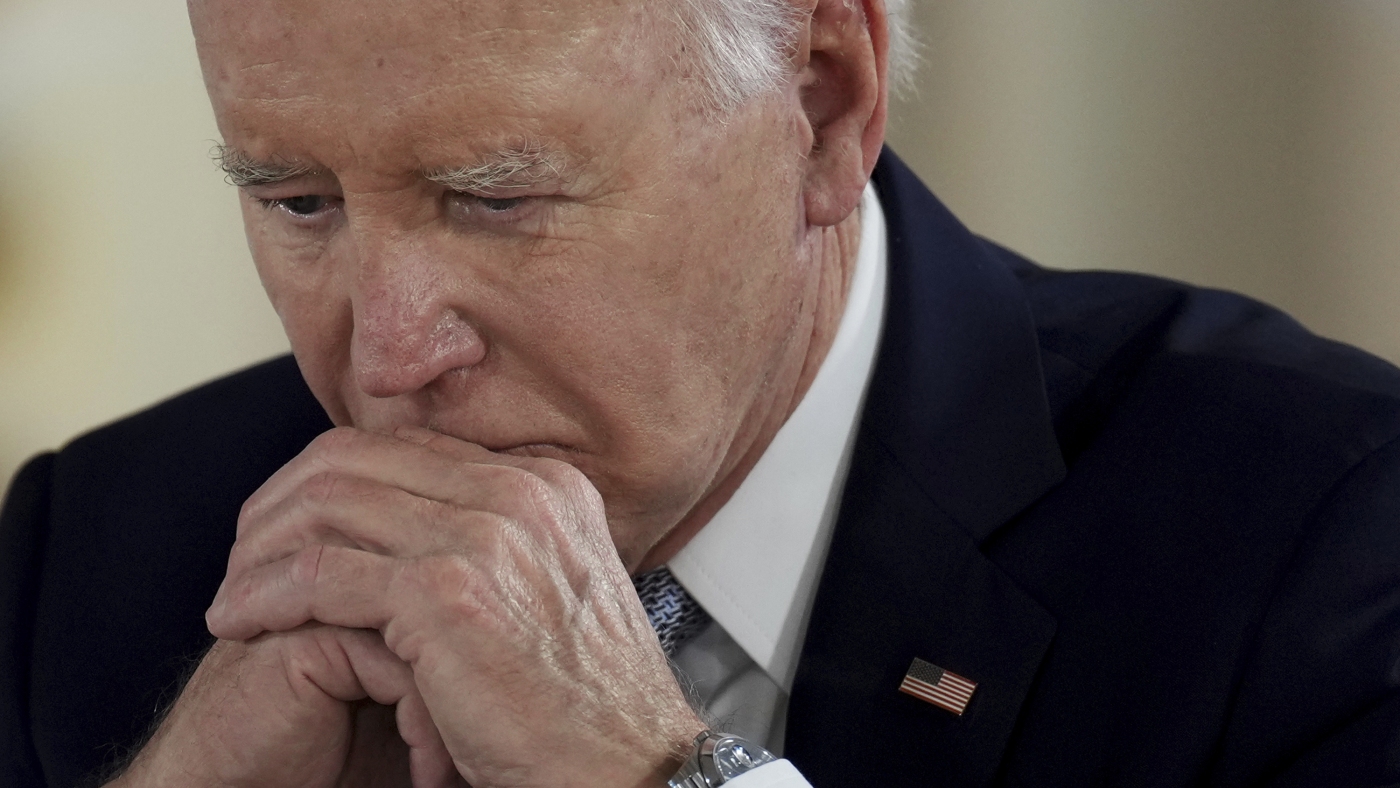An In-Depth Examination of “Original Sin”: Biden’s Decline, the Alleged Cover-Up, and the Political Fallout
The recent book *Original Sin: President Biden’s Decline, Its Cover-Up, and His Disastrous Choice to Run Again* by journalists Jake Tapper and Alex Thompson has stirred significant public and political debate. Rooted in exhaustive investigative journalism based on over 200 interviews, this work brings forward a controversial narrative on Joe Biden’s cognitive and physical health challenges during his presidency and campaign for reelection, alongside allegations of systematic efforts to obscure these issues. This report delves into the revelations, interpretations, and repercussions arising from this book.
—
The Central Thesis: Biden’s Decline and the Cover-Up
Tapper and Thompson’s book paints a portrait of President Joe Biden facing substantial cognitive decline and physical frailty during his tenure as the 46th president of the United States. The authors describe instances where Biden struggled with memory, lost his train of thought during speeches, and had difficulty recognizing people, including top aides and even celebrities like George Clooney. Physical deterioration was so pronounced that his aides reportedly considered the possibility he might need a wheelchair if reelected—a detail highlighting the gravity of his condition.
However, beyond detailing these personal challenges, *Original Sin* focuses heavily on what it terms a “cover-up” orchestrated by Biden’s inner circle. The book accuses loyal aides, family members, and advisors of deliberately concealing the president’s health problems from the public and media, thus shielding the electorate from fully understanding his capacity to govern and campaign effectively. This concealment, Tapper and Thompson argue, was not simply a protective act but a calculated effort that misled voters about Biden’s fitness for office.
—
The “Original Sin” of Running Again
Beyond documenting the decline and alleged cover-up, the book identifies Biden’s decision to pursue reelection at age 81—while experiencing these health challenges—as the eponymous “original sin” of the 2024 election cycle. The authors imply this critical choice set off a cascade of negative consequences, including undermining the Democratic Party’s electoral prospects.
According to their narrative, Biden’s campaign and inner circle suppressed worries about his condition, fearing public acknowledgment might have jeopardized his chances or forced a change in the nominee. The failure to transparently address these concerns, they contend, contributed to a lack of preparedness in the party and fueled divisions, ultimately impacting Biden’s capacity to counter Republican opposition, especially from Donald Trump.
—
Public and Media Reactions
The publication of *Original Sin* has elicited a tempest of reactions from various quarters. Conservatives have seized upon it to criticize Biden, claiming it confirms long-held suspicions of his fitness and alleging complicity or failure in the mainstream media to report the truth accurately.
Conversely, Jake Tapper himself has countered some of these claims, clarifying that the media did not engage in a deliberate cover-up but were themselves misled about the president’s condition. This distinction underscores the complexity of the situation, where communications from the White House and closely guarded circles shaped a narrative that even experienced political journalists found hard to penetrate fully.
Meanwhile, some Democrats and observers perceive the book as a harsh reckoning of internal failures—denoting “cowardice” or “careerism” among party elites who prioritized political expediency over transparency about the president’s health. This internal critique touches on broader questions about the ethics and responsibilities of political leadership and media coverage in times of democratic vulnerability.
—
Implications for American Politics and Governance
The stakes of the issues raised by *Original Sin* go beyond individual health concerns and tactical cover-ups. They invoke deep questions about the standards for presidential capability, voter rights to information, and the mechanisms by which political parties vet, support, or protect their leaders.
The book highlights how Biden’s diminished capacity not only affected daily governance and policy but also shaped the electoral battlefield in 2024. By concealing these realities, his inner circle may have hampered the Democratic Party’s strategic effectiveness, losing critical opportunities to prepare alternatives or recalibrate messaging.
Moreover, the scrutiny of this episode has ignited discussions on political accountability and the role of transparency in maintaining democratic trust. It is also a reminder of the human dimensions of leadership, considering the physical and cognitive toll political office can exact, especially in an era of high polarization and expanded media scrutiny.
—
Conclusion: A Stark Reminder of Democracy’s Fragility
*Original Sin* serves as an unflinching exploration of leadership vulnerability, political calculation, and the complex dance between public transparency and private stewardship. The book raises unsettling questions about what was known behind closed doors, what was communicated to the electorate, and the consequences of those decisions on the 2024 election and American democracy itself.
By illuminating the alleged cover-up and its fallout, Tapper and Thompson invite readers to reflect on the limits of loyalty and the necessity for openness in public service. Regardless of one’s political allegiance, the narrative underscores that the health and capacity of a nation’s leader are not merely personal concerns but fundamentally tied to the trust and future of the republic itself.
This investigation therefore stands as both a document of a turbulent political moment and a cautionary tale about the costs of obscuration and denial in public life. It reminds us that democratic resilience depends not only on leaders but on the willingness of all stakeholders—media, political parties, voters—to confront uncomfortable truths head-on.


